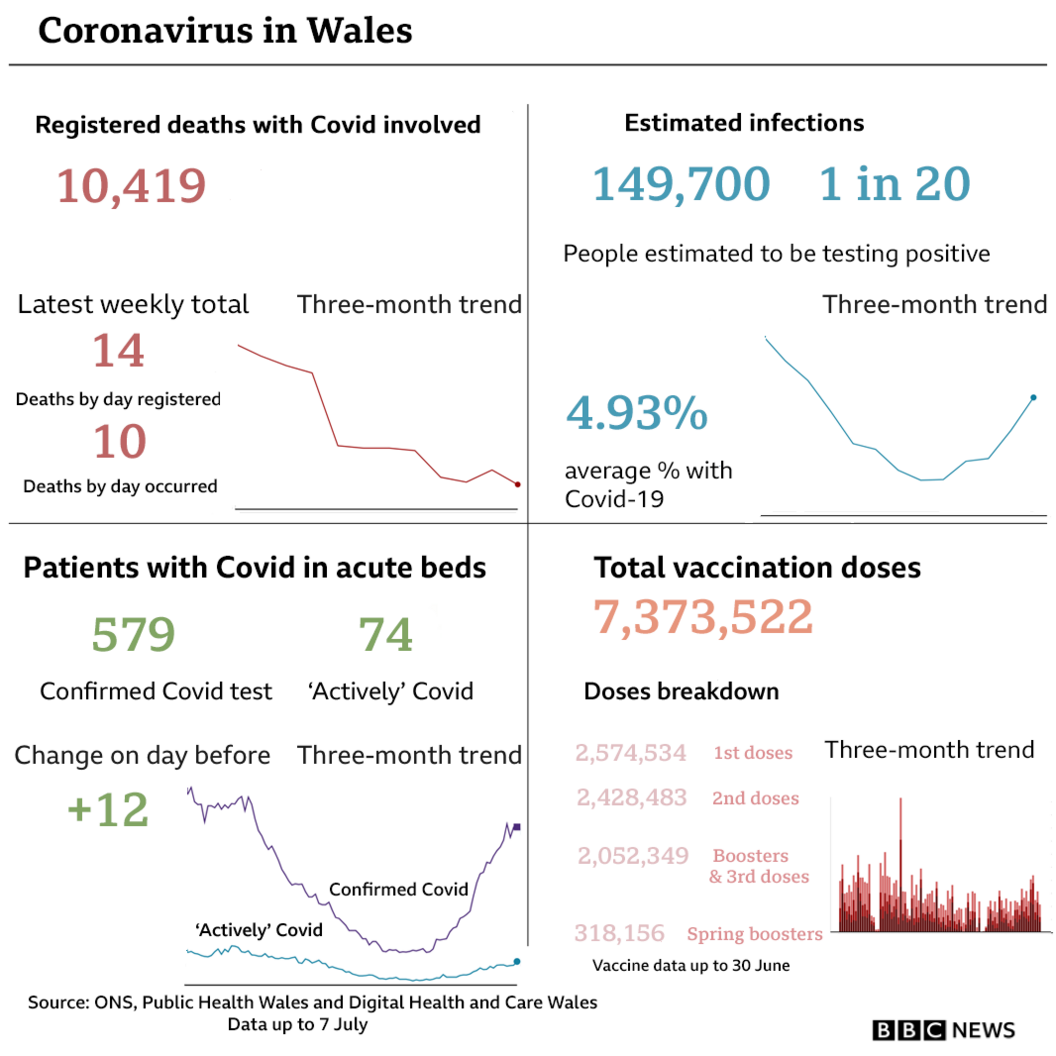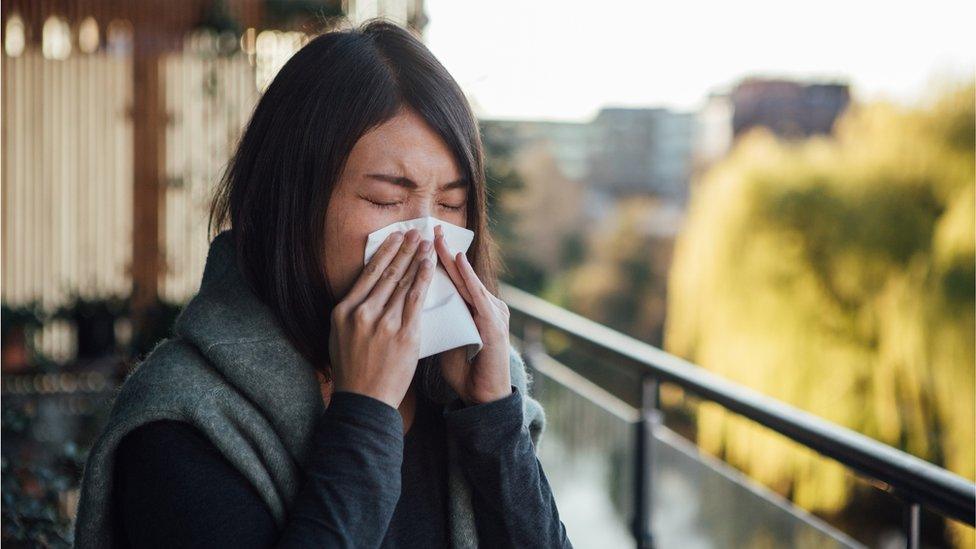Covid: Wales' infections rise for five weeks in a row
- Published

Thousands of households in Wales volunteer to be tested every week for the survey, which began nearly two years ago
Covid-19 infections in Wales are estimated to have risen for a fifth week in a row.
One in 20 people had Covid, according to the weekly swab survey, external from the Office for National Statistics (ONS).
An estimated 149,700 people in Wales had Covid in the week ending 1 July, 4.93% of the population, up from 106,000 people in the week before.
Health officials believe the wave is likely to end later this month but said it was no time to be complacent.
Meanwhile, the number of patients in acute hospital beds testing positive is the highest since April.
More than half of these people caught Covid in hospital, while 88% of patients with Covid are in hospital primarily to be treated for something else, according to daily data from Digital Health and Care Wales.
Health officials also said A&E attendances are running well above the usual numbers at this time of year.

Chief medical officer for Wales Dr Sir Frank Atherton said there were a lot of people off sick, including in health and social care - with about 12% of ambulance staff absent with illness.
But intensive care units were not seeing the same numbers of people seriously sick with Covid as earlier in the pandemic, while numbers of deaths from Covid remained at lower levels.
He said the country was in a "very serious wave of viral transmission."
This latest wave was being driven by the BA.4 and BA.5 sub-variants of the Omicron strain, which health officials said was six times more transmissable than the first strain of Covid.
"This wave has to end at some point - that's the good news," Dr Atherton told BBC Wales. "When we look at countries like Portugal, for example, where it seems this wave has been crested."
He said chief medical officers across the UK were coordinating.
"The general thinking is this wave has to end - probably at the end of this month and into August. But there's no guarantee of that. And we shouldn't take that as a reason to be complacent, because there will be future waves and the virus will continue to evolve - it's still with us and hasn't gone away."
Dr Atherton said he anticipated there would be future waves, which would have to be managed "as we go along."

What is the swab survey?
ONS takes swabs from thousands of people of all ages every week in Wales as part of an ongoing survey, which started nearly two years ago.
From the results it estimates what the level of infection is likely to be across the community.
ONS estimates infections to involve one in 25 people in England, one in 17 in Scotland and one in 19 in Northern Ireland.

Since the end of mass PCR testing at the end of March, this has been the most useful tool for telling how many people have Covid.
We can also see from Public Health Wales figures that positive lateral flow tests have also doubled in two weeks, with 6,873 positive tests in the 40 to 59 age group alone.
Free lateral flow tests for people with coronavirus symptoms are continuing until the end of July.
Dr Atherton said that a summer of festivals and community mixing was also driving the spread.
"We have gone back to normality in many ways as a society and the virus likes to transmit from person to person in crowded environments and so that's how it survives and the virus likes us and it likes us meeting together because that's how it moves around," he said.
"So those two things are playing a part."
But Dr Atherton also said that the way the vaccine stopped serious illness, but not the spread of the virus itself, was also a factor.
"The vaccines, which have been very very successful at breaking that link between high levels of community transmission and harm, they're still working very well in that space, but they're not as good at preventing transmission."
Health officials are hoping to unveil details of the autumn vaccine programme soon, which is expected to involve both Covid and flu jabs.
- Published8 July 2022

- Published28 May 2024

- Published20 December 2023

- Published2 July 2022